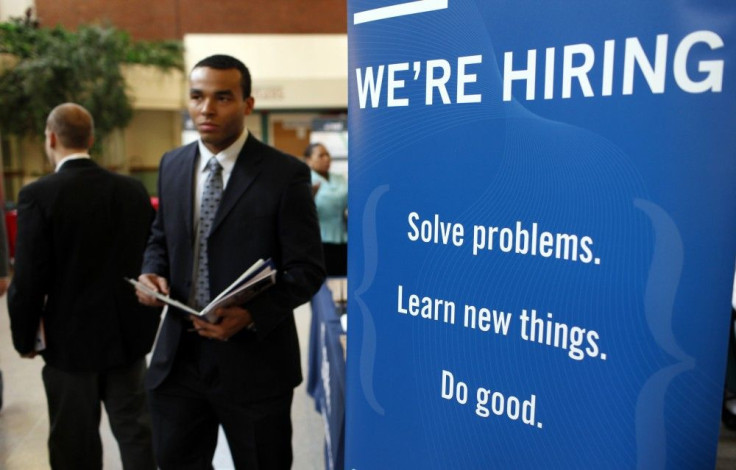Jobless Claims Fall To 348,000, Lowest Level Since Feb. 2008

Claims for U.S. jobless benefits fell to a fresh four-year low of 348,000, positive news that some economists believe will be hard to maintain due to softness in the manufacturing sector.
In the week ended March 17, applications for unemployment insurance payments declined by 5,000 to 348,000, according to data from the Labor Department issued Thursday. Economists polled by Reuters had forecast claims rising to 354,000 last week.
The four-week moving average, considered a better measure of labor market trends because it smooths out weekly fluctuations, was 355,000, a decrease of 1,250 from the previous week's revised average of 356,250 for first-time benefit applicants.
We've made a tremendous amount of improvement in the labor market over the last couple of years, Steve Blitz, chief economist at ITG Investment Research, said before the report.
Without saying anything regarding to the types of jobs people are getting, whether they are the same high-paying jobs that they had, the economy has expanded enough so that layoffs are less, Blitz added.
Job gains are of great importance because they lead to income growth and that supports consumer spending, which accounts for more than 70 percent of U.S. economic growth.
Continuing Claims
The number of people filing for benefits after an initial week of aid decreased by 9,000, to 3.35 million in the week ended March 10.
The continuing claims figure doesn't include the number of Americans receiving extended benefits under federal programs.
The four-week moving average for the week ended March 10 fell 13,000 to 3.39 million from the preceding week's revised average of 3.40 million.
Blitz said it'll be somewhat harder for layoffs to continue to decline from the current level down to 300,000 in the next three months due to some slowdown seen in the industrial activity.
There is the sense that perhaps some of the second quarter activity got pulled into the first quarter due to the weather, Blitz said. As a consequence, you're not going to get further gains going forward.
Stock index futures slipped Thursday. S&P 500 futures lost 7.8 points and Dow Jones Industrial Average futures were down 62 points.
© Copyright IBTimes 2024. All rights reserved.












